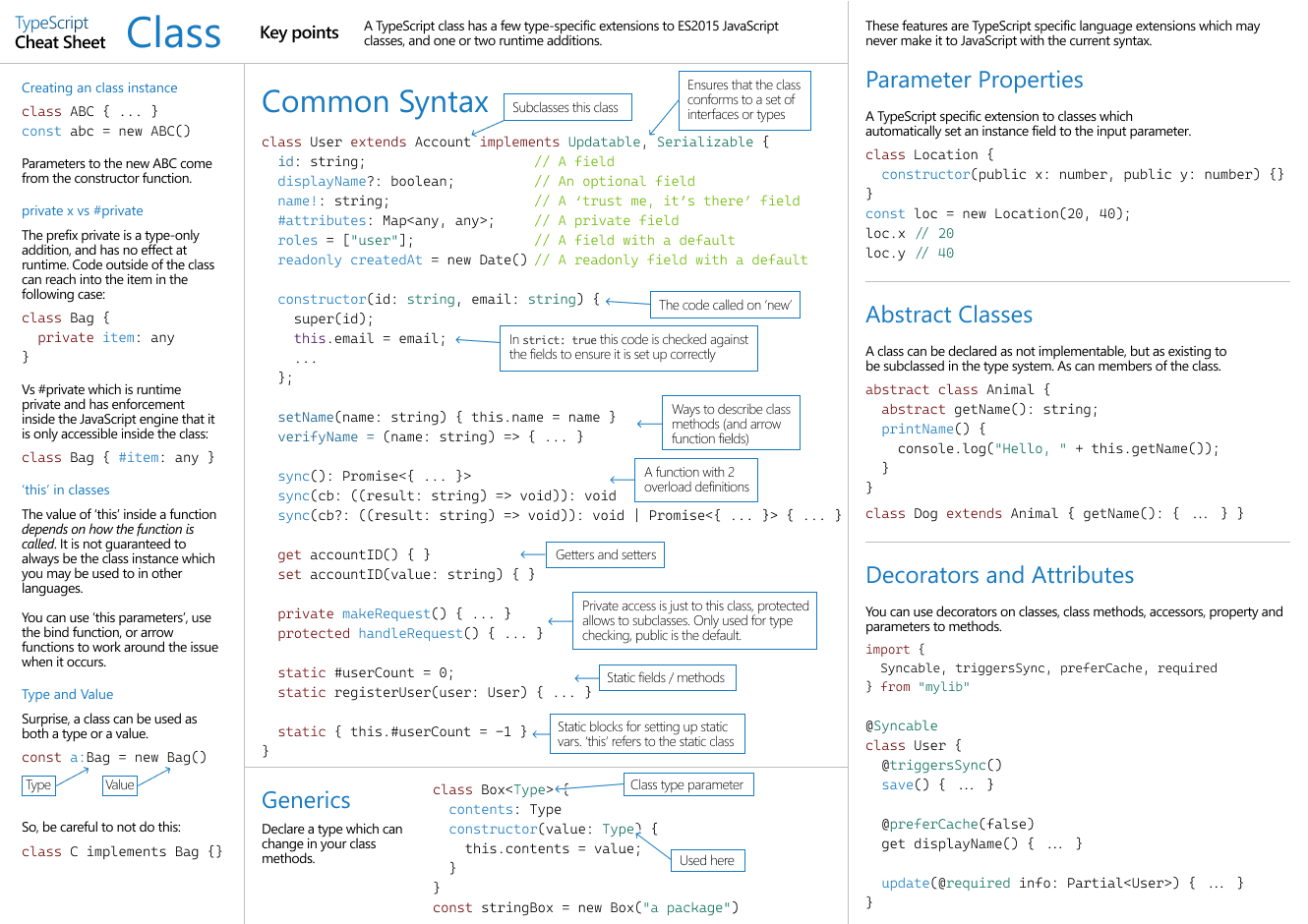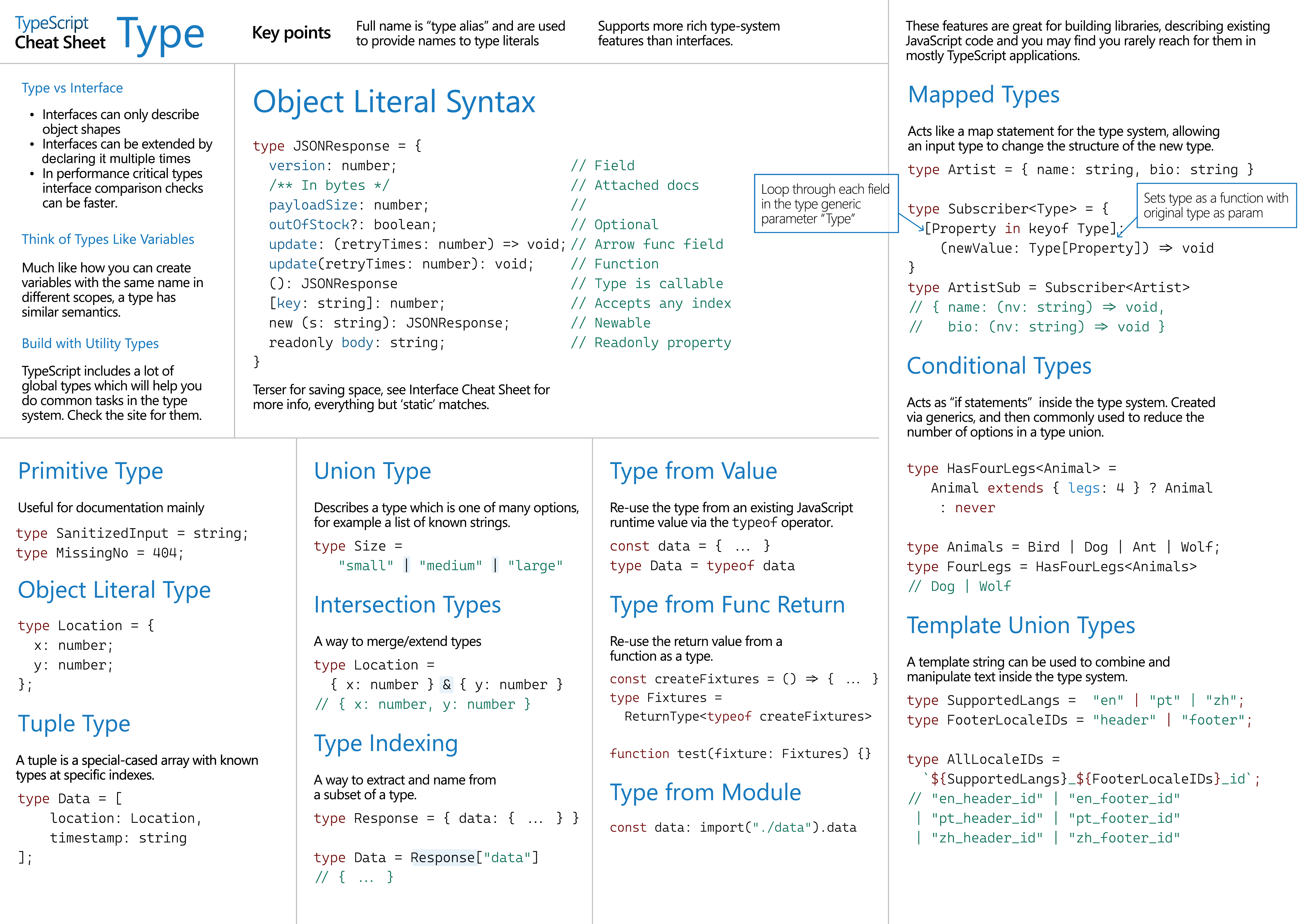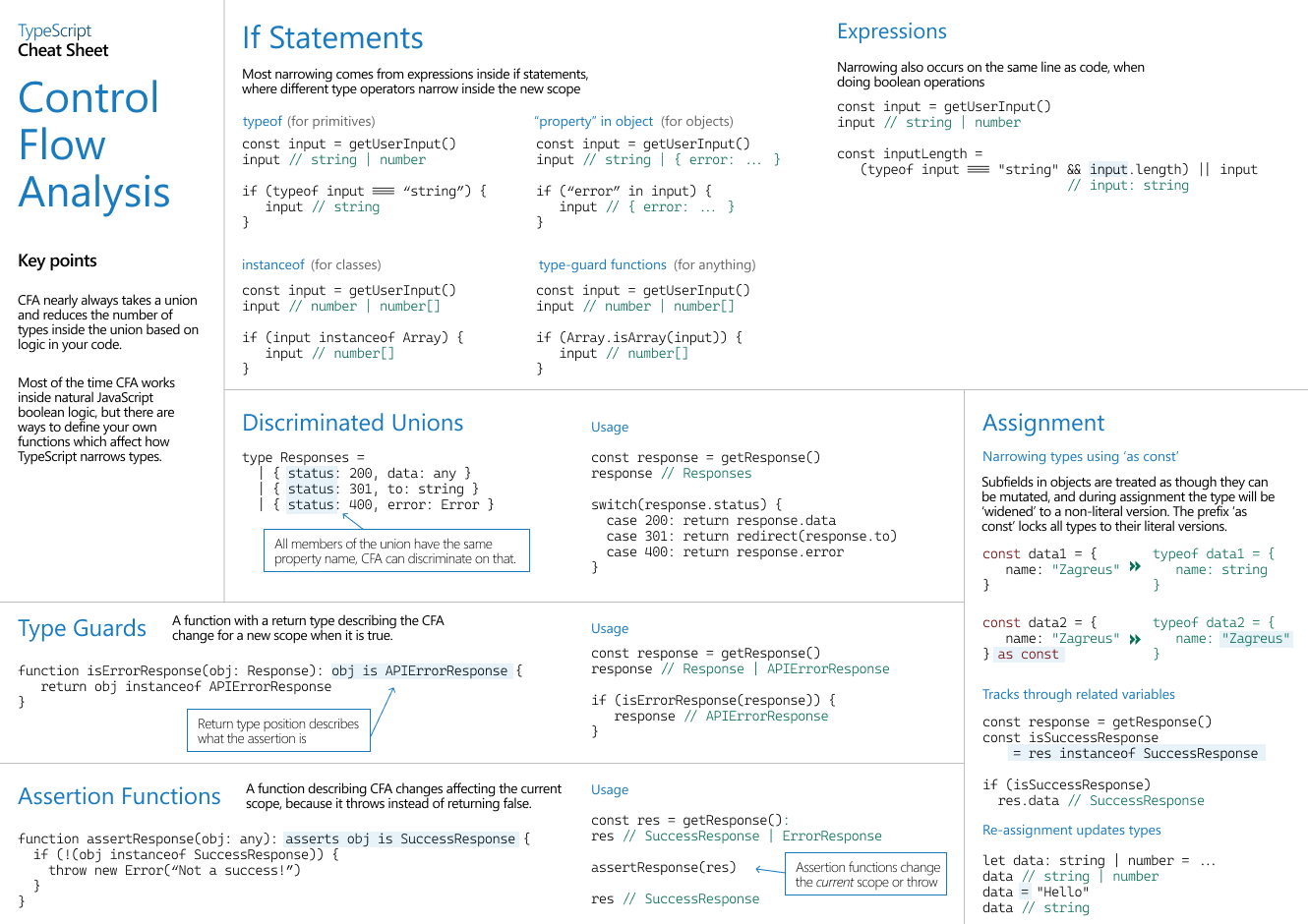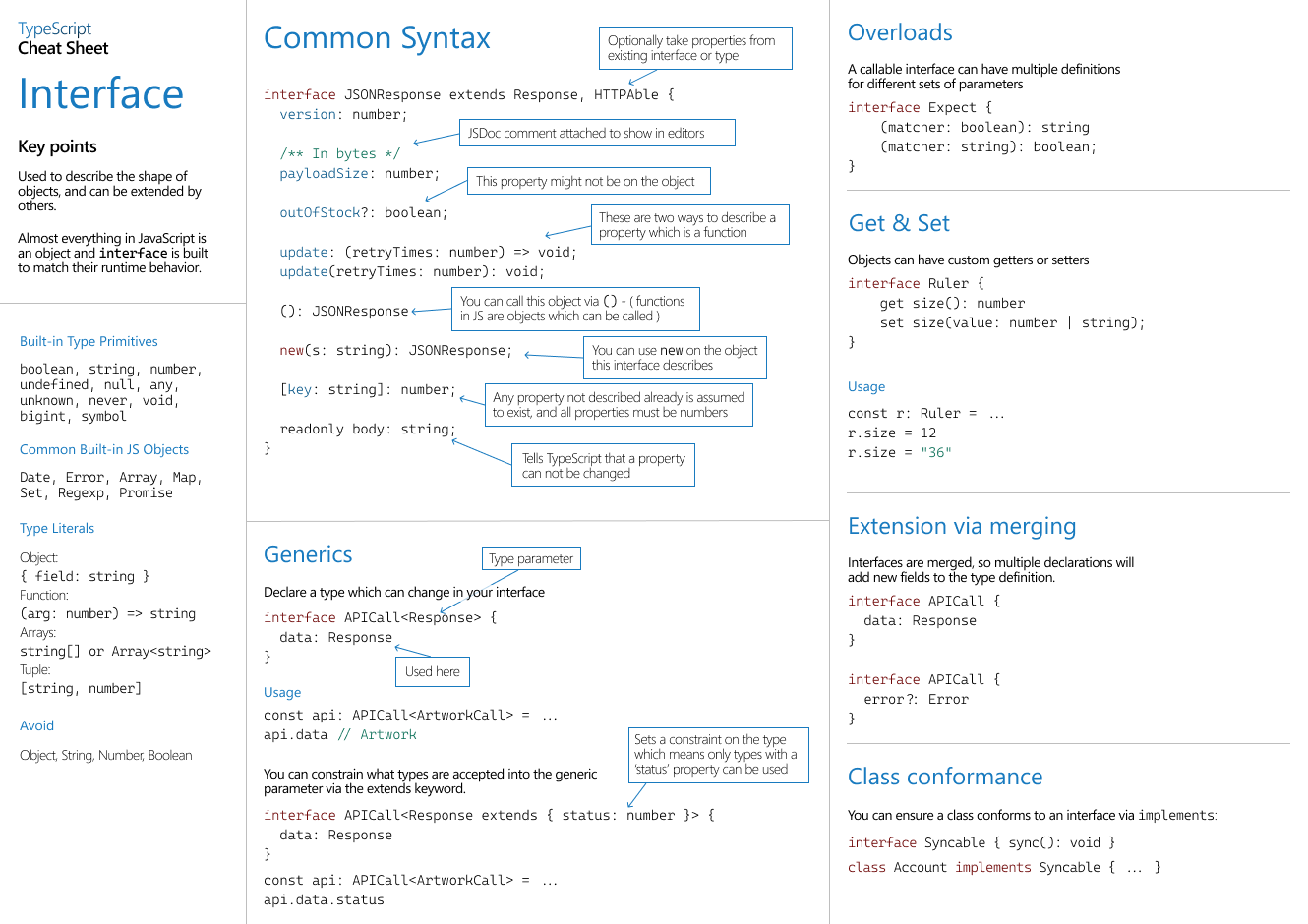Typescript
Intro
TypeScript is a strongly typed programming language that builds on JavaScript, giving you better tooling at any scale.
Hand Notes
https://www.dropbox.com/s/sz1muwys6tbz3dk/TypeScript%20Notes.pdf?dl=0
Playground
https://www.typescriptlang.org/play?#code/Q
CheatSheet
https://www.typescriptlang.org/cheatsheets
CheatSheets
https://www.sitepen.com/blog/typescript-cheat-sheet




Good Practices
- Use unknown instead any
Unknown can be used to define a variable type latter on the code
- Use Type Guard
interface IUser {
id: number
firstName: string
lastName: string
gender: string
image: string
age: number
}
interface IAdminUser extends IUser {
token : string
addNewUser: () => void
}
// object is IAdminUser is type guard
function isAdminUser(object: unknown): object is IAdminUser {
if (object !== null && typeof object === "object")
return "token" in object /// check if token inside object
return false
}
// object is IAdminUser is type guard
function isRegularUser(object: unknown): object is IUser {
if (object !== null && typeof object === "object")
return "token" in object /// check if token inside object
return false
}
async function fetchUser() {
const response = await fetch('https://dummyjson.com/users/1')
// Bad No checking if admin or not even if we use badUser: IAdminUser interface no checking is done
const badUser = await response.json();
// Good using Type Guard
const goodUser: unknown = await response.json();
if (isAdminUser(goodUser){
///goodUser will have all IAdminUser methods
})
if (isRegularUser(goodUser){
///goodUser will have all IUser methods
})
}
- Use is operator
type Species = "cat" | "dog";
interface Pet {
species: Species
}
class Cat implements Pet {
public species: Species = "cat"
public meow(): void {
console.log("meow")
}
public jump(): void {
console.log("jumping")
}
public walk(): void {
console.log("walking")
}
/// Good Is operator
function petIsCat(pet: Pet): pet is Cat{
return pet.species === "cat";
}
/// Bad wont enable TS to know return is Cat, no autocomplete
function petIsCatBoolean(pet: Pet): boolean{
return pet.species === "cat";
}
}
const p: Pet = new Cat();
/// bad
/// p.meow() does note exists on type Pet
if (petIsCatBoolean(p)) {
(p as Cat).meow(); /// bad , will have to repeat the type casting for every method
}
if (petIsCat(p)) {
p.meow(); /// good, will use is Operator
}
- Use satisfies operator (added on TS 4.9)
interface ICustomImage {
data: string;
width: number;
heigth: number;
}
const myCustomImage: ICustomImage = {
data: "base64",
width: 200,
height: 150,
};
type UserImage = string | ICustomImage;
interface IUser {
id: number;
firstName: string;
lastName: string;
image: UserImage;
}
/// Bad
const badUser: IUser = {
id: 1,
firstName: "Alex",
lastName: "Brooks",
image: "image-url",
};
/// badUser.image. wont have all string methods. TS dont know if string or ICustomImage and will make an intersection between these two types
/// Good
const goodUser: IUser = {
id: 1,
firstName: "Alex",
lastName: "Brooks",
image: "image-url",
} satisfies IUser;
- Use enums correctly
enum BadState {
InProgress,
Success,
Fail
}
const badCheckState = (state: BadState ) => {
}
/// would not raise error
badCheckState(100);
/// Good
type GoodState = "InProgress" | "Success" | "Fail"
/// also good
enum GoodState2 {
InProgress = "InProgress"
Success = "Success"
Fail = "Fail"
}
const goodCheckState = (state: GoodState ) => {
}
goodCheckState("dfnsndf") // will fail
- Use Utility Types
Suppose we wanted to update a single field of a product. We could make all files of IProduct optional
interface IProduct {
id: number
title: string
description: string
thumbnail: string
price: number
rating: number
}
/// Partial make anything inside that interface Optional
/// Omit remove id from IProduct
function updateProduct (
productID: IProduct["id"].
updateProduct: Partial<Omit<IProduct, "id">>
){
updateProduct. // wont show id
}
- Use Record
type Properties = "red" | "green" | "blue"
type RGB = [red: number, green: number, blue: number]
// Record create keys and values
// keys only can be Properties and values can be RGB or String
const color: Record<Properties, RGB | string > = {
red: [255,0,0]
green: "green"
blue: "blue"
}
References
https://www.typescriptlang.org/docs/handbook/intro.html